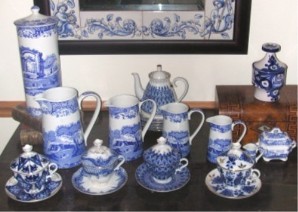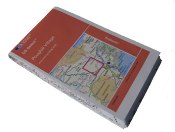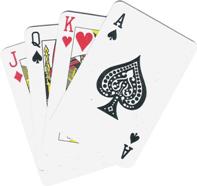Category: "Uncategorized"
Чайник (часть вторая)

I had my mom and great aunt over for tea this evening. This got me thinking about how much Russians love tea. We will have it with meals, after meals, and even between meals. And if you are going over to someone's house, chances are you will be offered tea. There are a couple of things one must have for proper tea. The first of course is чай tea (usually the loose leaves, no teabag), and the second is our word of the day чайник a teapot.
| Sg | Pl | |
| Nom | чайник | чайники |
| Acc | чайник | чайники |
| Gen | чайника | чайников |
| Pre | чайнике | чайниках |
| Dat | чайнику | чайникам |
| Ins | чайником | чайниками |
Моя мама дала мне стеклянный чайник.
My mom gave me a glass teapot.
У Маши коллекция интересных чайников.
Masha has a collection of interesting teapots.

Извините, где я могу найти чайники?
Excuse me, where can I find the kettles?
Сколько воды в чайнике?
How much water is in the teapot?
Don adds: Here is a piece of American trivia for Russian readers. Although Americans drink less tea than Russians, there is one song known to absolutely every American child that is called “I'm a little teapot.” The words are:
Here is my handle, here is my spout.
When I get all steamed up, I will shout:
“Just tip me over and pour me out.”
Of course there are movements to the song as well. Here's a cute example from YouTube:
Компьютер
I had technical issues today. Which is incredibly frustrating during finals week. This afternoon my компьпьютер began to blink and have mouse issues.

Aren't these the very inventions meant to make our lives easier? Компьютер is Russian for computer. Yep, another one of those wonderful words that are very similar in both languages!
Here's how it declines:
| Sg | Pl | |
| Nom | компьютер | компьютеры |
| Acc | компьютер | компьютеры |
| Gen | компьютера | компьютеров |
| Pre | компьютере | компьютерах |
| Dat | компьютеру | компьютерам |
| Ins | компьютером | компьютерами |
And some examples:
Что с твоим компьютером?
What's with your computer?
Мой компьютер сломан!
My computer is broken!
Знаете ли вы разницу между этими компьютерами?
Do you know the difference between these computers?
Есть ли интернет на вашем компьютере?
Do you have internet on your computer?
In the end it came down to uninstalling and then installing an updated driver, and tada! I am able to blog again. No thanks to tech support for a company that shall remain nameless. ![]()
Карта

I remember back in the old days, the 90s, everyone I knew had at least one карта in the glove-box. This means map in Russian. And I don't know anyone who carries a paper version these days.
| Sg | Pl | |
| Nom | карта | карты |
| Acc | карту | карты |
| Gen | карты | карт |
| Pre | карте | картах |
| Dat | карте | картам |
| Ins | картой | картами |
Мне нужна карта Сан-Диего.
I need a map of San Diego.
Катя, возьми карту метро, чтобы не заблудиться.
Katya, take a subway map so you don't get lost.
The second translation of карта is card. What kind of card? Well, that depends on the adjective preceding it.
Звуковая карта- Sound card
Кредитная карта- Credit card
Дебетовая карта- Debit card

Банк одобрил мою кредитную карту.
The bank approved my credit card.
Давайте играть в карты.
Let's play cards.
This last sentence demonstrates a way to use the plural, Карты. This could mean, many maps, but with the verb играть “to play” it commonly refers to playing cards.

Шкаф
Now here is word that is interesting. It describes a piece of furniture standing in a room that hold either books or clothes or something else. It usually has doors on it. It declines like this:
| Sg | Pl | |
| Nom | шкаф | шкафы |
| Acc | ||
| Gen | шкафa | шкафов |
| Pre | шкафе | шкафах |
| Dat | шкафу | шкафам |
| Ins | шкафом | шкафами |
Actually, that's not the entire declension. Шкаф is one of those words that distinguish the locative case singular from the prepositional singular. In other words, if you are saying in/on the piece of furniture, the form of the word after the prepositions в/на is шкафу.
For us Americans this seems an odd piece of furniture. After all, if you are hanging up clothes, you use a closet. If you are laying them in a piece of furniture, then you use a chest of drawers. If you are putting books somewhere, then it is a bookshelf. Why do the Russians use a different piece of furniture? I suspect it has something to do with old European taxation schemes. If you make a separate tiny room to hang clothes in (a closet), that room counts as a separate room for taxation purposes. So if you want to hang your clothes in Europe, then the most cost effective way is to buy a flat and then add a piece of furniture to it for that purpose. In British English I'm guessing the best word for such a piece of furniture is ‘wardrobe,’ which is neatly reflected in one of the translations of C. S. Lewis's well-known book “The Lion, the Witch, and the Wardrobe,” which came out in Wikipedia's Russian translation as «Лев, колдунья и платяной шкаф». Probably the best word for such a piece of furniture in current AmE is ‘armoire.’
Here are some sample sentences:
| Положи бельё в шкаф. | Put the underwear in the armoire. |
| Все мои словари находятся в книжном шкафу. | All my dictionaries are in the book shelf. |
| Возьми чашки из шкафа. | Get the cups from the cupboard. |
| Мои деньги спрятаны в книжном шкафу за бюстом Ленина. | My money is hidden in the bookshelf behind the bust of Lenin. |
Весь
The Russian word весь can be translated as ‘all,’ “the whole” or “the entire.” It declines like this:
| Masc | Neut | Fem | Pl | |
| Nom | весь | всё | вся | все |
| Acc | * | всю | * | |
| Gen | всего | всeй | всех | |
| Pre | всём | |||
| Dat | всему | всемм | ||
| Ins | всем | всеми | ||
One of the most common uses of this word is with the four times of day. When it is used with them, the time phrase is in the accusative case:
| Я всё утро старался выяснить, почему нам не заплатили. | All morning I was trying to figure out why we hadn't been paid. |
| Мама весь день была на работе. | Mom was at work all day. |
| Весь вечер мы смотрели итальянские фильмы. | We watched Italian movies for the entire evening. |
| Папа всю ночь не спал. | Dad didn't sleep all night long. |
Of course the word can also be used with things that aren't time phrases:
| По всему полю были заложены мины. | The entire fiеld was covered with landmines. |
| Она прочитала всю статью за два часа. | She read the whole article in two hours. |
| Весь мир знает, что Советский Союз защищает права трудящихся всех стран. | The entire world knows that the Soviet Union defends the rights of workers of all countries. |
<< 1 ... 12 13 14 ...15 ...16 17 18 ...19 ...20 21 22 ... 41 >>